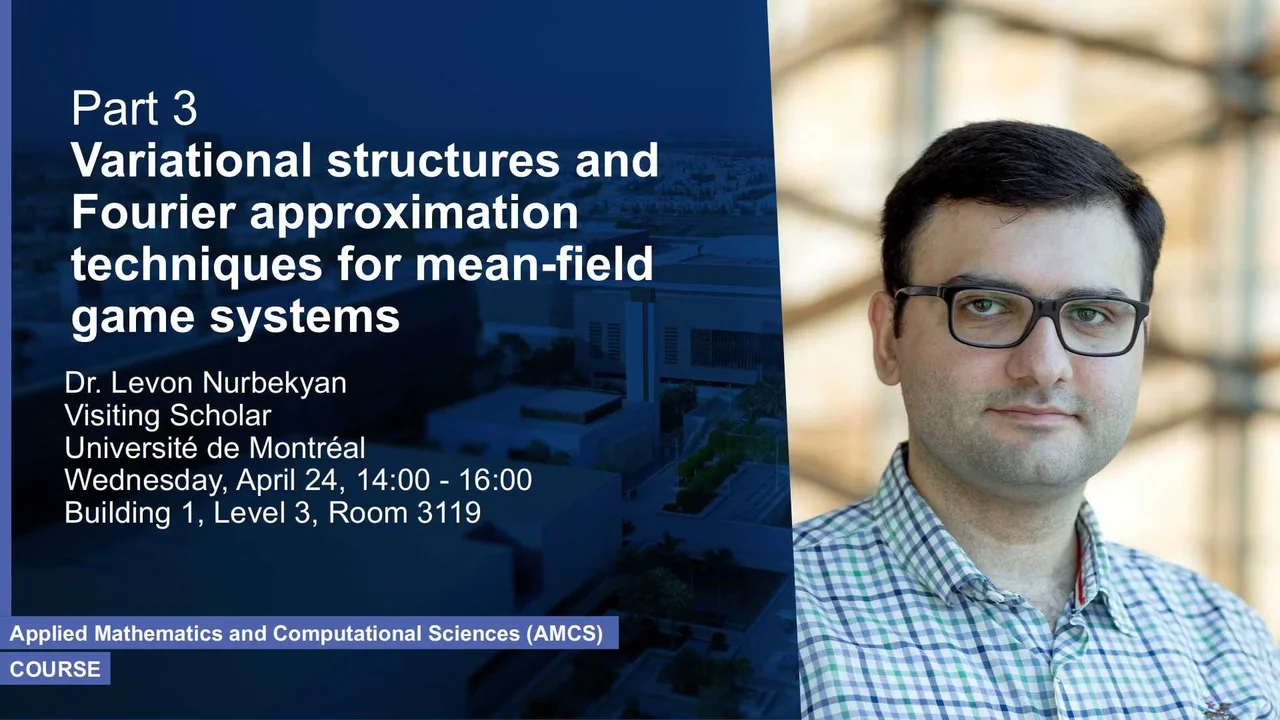
Part 3: Variational structures and Fourier approximation techniques for mean-field game systems
Mean-field game (MFG) systems of partial differential equations (PDE) arise in modeling huge populations of indistinguishable rational agents that play non-cooperative differential games. Mathematically, an MFG system comprises of a Hamilton-Jacobi-Bellman PDE coupled with a Kolmogorov-Fokker-Planck PDE in a highly nonlinear fashion. Hence, theoretical and numerical treatments of MFG systems are highly challenging problems.
Overview
Abstract
Mean-field game (MFG) systems of partial differential equations (PDE) arise in modeling huge populations of indistinguishable rational agents that play non-cooperative differential games. Mathematically, an MFG system comprises of a Hamilton-Jacobi-Bellman PDE coupled with a Kolmogorov-Fokker-Planck PDE in a highly nonlinear fashion. Hence, theoretical and numerical treatments of MFG systems are highly challenging problems.
Day 3: I will discuss a two-player infinite-dimensional differential game formulation of MFG systems and derive previously known variational principles from this formulation. Additionally, I will obtain new variational formulations for suitable MFG models that do not fall into the standard variational framework discussed on Day 1. Finally, if time permits I will present some more neat applications of these new formulations.
Brief Biography
Currently, I am a Visiting Scholar at the Department of Mathematics and Statistics at McGill University and a Simons CRM Scholar at the Centre de Recherches Mathématiques (CRM) at Université de Montréal. I obtained my Ph.D. in the framework of UT Austin -- Portugal CoLab under supervision of Professors Diogo Gomes and Alessio Figalli. Afterwards, I held postdoctoral and junior researcher positions at Instituto Superior Técnico, National Academy of Sciences of Armenia, and King Abdullah University of Science and Technology. My research interests include calculus of variations, optimal control theory, mean-field games, partial differential equations, mathematics applied to machine learning, dynamical systems, and shape optimization problems.
